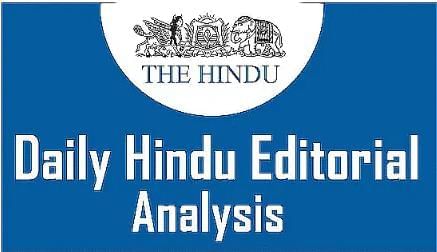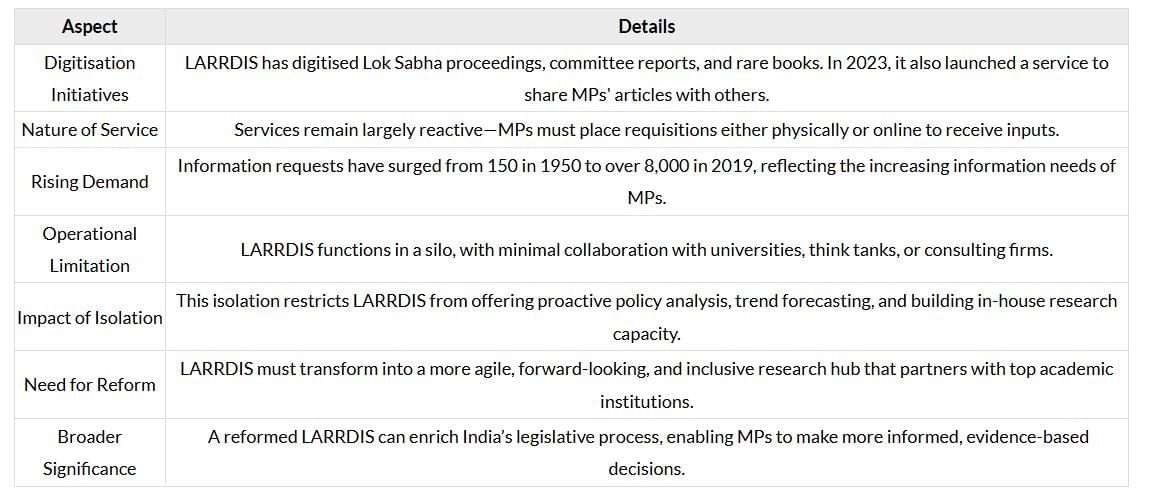UPSC Exam > UPSC Notes > Current Affairs & Hindu Analysis: Daily, Weekly & Monthly > The Hindu Editorial Analysis- 4th July 2025
The Hindu Editorial Analysis- 4th July 2025 | Current Affairs & Hindu Analysis: Daily, Weekly & Monthly - UPSC PDF Download

Socialism, secularism are the spirit of the Constitution
Why in News?
Recently, leaders of the Rashtriya Swayamsevak Sangh (RSS) have called for removing the words "socialism" and "secularism" from the Preamble of the Indian Constitution. This demand is seen as a direct challenge to the foundational values and vision of the Indian republic.
Background
The Constitution of India is not just a legal framework; it embodies the aspirations and ideals of a nation that emerged from a prolonged anti-colonial struggle. Socialism and secularism are integral to this framework, reflecting the commitment to social and economic justice, equality, and the harmonious coexistence of diverse religions.
Socialism in the Indian Constitution
- Commitment to Social and Economic Justice: Socialism in the Constitution signifies a commitment to social and economic justice, aiming to reduce inequality and establish a welfare state.
- Preamble's Promise: The Preamble guarantees "Justice – social, economic, and political" and "Equality of status and opportunity" to all citizens, reflecting socialist ideals.
- Fundamental Rights Support:Fundamental Rights uphold socialism by ensuring freedoms and equality, such as:
- Article 14: Guarantees equality before the law.
- Article 15: Prohibits discrimination based on religion, race, caste, sex, or place of birth.
- Article 16: Ensures equal opportunity in public employment.
- Directive Principles of State Policy (DPSPs): DPSPs outline a roadmap for a socialist society, emphasizing welfare and reducing inequalities through various articles addressing work, conditions, and wages.
- Real-World Impact: These principles have influenced significant laws and court decisions, shaping the socio-economic landscape of India.
Secularism in the Indian Constitution
- Meaning of Secularism: Secularism in India involves the equal treatment of all religions, ensuring that the state does not favour or discriminate against any religion.
- Protection of Minority Rights: The state is obligated to protect the rights of minorities and ensure no discrimination based on religion.
- Fundamental Rights Reinforcement: Articles within the Fundamental Rights section strengthen secularism by guaranteeing freedom of religion and protecting the cultural and educational rights of minorities.
- Articles Ensuring Religious Freedom:
- Articles 25-28: Ensure freedom of religion, allowing individuals to practice and propagate their religion.
- Articles 29 & 30: Protect the rights of religious and linguistic minorities to establish and administer educational institutions.
- Core Principles Remain Unchanged: Even if the words "socialist" and "secular" were removed from the Preamble, the core values of equality, liberty, and justice would remain intact.
- Dr. B.R. Ambedkar’s Vision: Ambedkar’s emphasis on equality and the core principles of the Constitution in his speech during the Constituent Assembly deliberations highlights the enduring relevance of these values.
- Basic Structure Doctrine: The Basic Structure Doctrine, established in the 1973 Kesavananda Bharati case, asserts that while Parliament can amend the Constitution, it cannot alter its fundamental principles.
- Historical Presence of Secularism: The word "secular" appeared in Article 25(2)(a) before the 42nd Amendment in 1976, indicating that the principle was embedded in the Constitution prior to its explicit mention.
Socialist and Secular Values: Not New Additions
- Historical Core Values: Socialism and secularism were not mere additions in the 1970s but were integral to the Constitution from the outset. The Objective Resolution by the Constituent Assembly highlighted these as core values.
- Reflection of Freedom Struggle: The debates during the Constitution's framing and the freedom struggle demonstrated that social justice, economic equality, and fraternity (socialist values) and religious freedom, equal treatment, and minority protection (secular values) were fundamental to the Indian Republic.
- Pre-1976 Recognition of Secularism: The concept of secularism was already present in Article 25(2)(a), indicating its recognition before the 42nd Amendment.
The Constitution’s Core Remains Intact
- Persistence of Core Values: Even if "socialist" and "secular" were removed from the Preamble, the Constitution’s core values of equality, liberty, and justice would still be reflected in its spirit and structure.
- Ambedkar’s Vision as Guiding Principle: Dr. B.R. Ambedkar’s vision, as articulated in his speech to the Constituent Assembly, underscores the importance of equality and the foundational principles of the Constitution. His warnings against undermining these values remain relevant.
- Continued Relevance of Ambedkar’s Ideas: Ambedkar’s ideas, being integral to the Constitution’s foundation, continue to guide India’s democratic ethos and serve as a bulwark against attempts to dilute fundamental values.
The Real Agenda Has Been Exposed
- RSS's Intent: The RSS aims to remove "socialism" and "secularism" from the Constitution's Preamble, which is seen as a strategic move to weaken the core values of the Indian Republic.
- Long-term Goal: This demand reflects the RSS's long-term objective to replace the current Constitution with one based on the Manusmriti, promoting a Hindu religious state (Hindu Rashtra) and undermining India’s secular and democratic framework.
- Historical Revisionism: Removing these terms is also an attempt to revise history, downplaying the significance of India’s anti-colonial struggle and the foundational role of socialism and secularism in the Constitution.
- Shift Towards Majoritarianism: Such changes could pave the way for a majoritarian state where minority rights are compromised, aligning with the RSS's vision of a Hindu Rashtra.
Conclusion
- The Constitution of India, embodying the principles of justice, liberty, equality, and fraternity, is under threat from efforts to undermine its foundational values of socialism and secularism.
- These values are crucial for the functioning of Indian democracy and any attack on them is an attack on the core spirit of the Constitution.
- All those who respect the values of the freedom movement must come together to protect the Constitution and oppose any efforts to harm the idea of India.
Opening new doors for Parliament’s library service
Why in News?
- Upgrading LARRDIS into a research hub will enhance legislative quality and promote informed, evidence-based policymaking.
Introduction
- Disruptions have become common in India’s parliamentary proceedings, but it's important to remember that Parliament is where policies are made, scrutinized, and the government is held accountable by elected representatives.
Legislative Capacity and Research Support in Parliament
- Complex Legislative Agenda: Addressing diverse issues like economic reforms, climate change, national security, and emerging technologies requires extensive expertise.
- Underutilisation of Parliamentary Resources: The Parliament Library, despite being one of India’s best institutional libraries, is rarely used by MPs, raising concerns about its underutilisation.
- Role of LARRDIS: The Library and Reference, Research, Documentation and Information Service (LARRDIS) assists MPs with prompt responses to queries. For example, a request for a compilation of another MP’s speeches was completed in three days. However, LARRDIS's scope is limited to digitised records and it is not a research institution.
- External Research Support – PRS and LAMP: PRS Legislative Research and its LAMP Fellowship help bridge the research gap, but only 40–50 MPs can access LAMP fellows at a time due to resource limitations.
- Dependence on Partisan or Informal Sources: In the absence of formal support, many MPs rely on political aides, external consultants, or party-provided materials, leading to potentially biased or inadequate information and superficial debates.
The good, the bad and the ugly of LARRDIS

Other parliamentary research services
- Dedicated Research Units: Established democracies have units that provide objective and expert input for legislative functions.
- IFLA-IPU Guidelines: Parliamentary research should ensure confidentiality and neutrality to serve lawmakers effectively.
- EPRS: Collaborates with think tanks and academic partners to build a knowledge repository and provide impact assessments.
- OCAL – Argentina: Offers scientific and technological advice to Parliament and links MPs with experts.
- OPECST – France: Evaluates scientific options for Parliament through expert networks.
- INCyTU – Mexico: Acts as the science and tech information office for Congress, similar to OPECST.
- LARRDIS Reform Potential: Can evolve into a knowledge hub through partnerships with universities for policy-relevant research.
- Benin and Colombia (IPU): Scholars embedded in Parliament co-author technical policy papers.
- Egypt’s Model: Specialists are attached to parliamentary committees for expert guidance.
- Sweden’s RIFO: Enables ongoing dialogue and policy-science integration through the Association of MPs and Researchers.
Building an institutional asset
- Approach: Phased and Consultative:. gradual and inclusive strategy, aligned with global best practices, is ideal for restructuring LARRDIS to ensure effectiveness and stakeholder buy-in.
- Mandate Clarity: LARRDIS needs a clearly defined scope of work, including research responsibilities, advisory functions, and analytical support to MPs.
- Eligible Users: The framework should identify who can access its services — primarily Members of Parliament, but potentially also citizens, journalists, and researchers under defined protocols.
- Turnaround Timelines: Establish clear service delivery standards, specifying response times for various types of requests, ensuring timely support to legislative work.
- Confidentiality Protocols: Robust confidentiality mechanisms must be laid out to protect the privacy of MP queries and the integrity of sensitive research data.
- Expertise Infusion: Involve talent from think tanks, universities, consulting firms, and multilateral bodies like the World Bank, OECD, and UNDP to bring global insights and domain-specific expertise into legislative research.
Conclusion
- Transforming LARRDIS is a strategic move towards effective lawmaking, accountability, and governance.
- It aims to bridge the information gap between the legislature and executive, enhancing the quality of parliamentary debates and public trust in the system.
The document The Hindu Editorial Analysis- 4th July 2025 | Current Affairs & Hindu Analysis: Daily, Weekly & Monthly - UPSC is a part of the UPSC Course Current Affairs & Hindu Analysis: Daily, Weekly & Monthly.
All you need of UPSC at this link: UPSC
|
44 videos|5343 docs|1128 tests
|
FAQs on The Hindu Editorial Analysis- 4th July 2025 - Current Affairs & Hindu Analysis: Daily, Weekly & Monthly - UPSC
| 1. What are the core principles of socialism as reflected in the Constitution? |  |
Ans. The core principles of socialism as reflected in the Constitution include the aim of achieving social and economic equality, ensuring that wealth is distributed in a manner that benefits all sections of society, and promoting social justice. This is evident in the directive principles of state policy, which guide the government in making laws aimed at reducing inequalities in income and wealth.
| 2. How does secularism play a role in the Constitution? |  |
Ans. Secularism in the Constitution ensures that the state treats all religions equally and does not favor any religion over others. It promotes the idea of a pluralistic society where individuals are free to practice their religion without government interference. This principle is essential in maintaining harmony among diverse religious communities in the country.
| 3. What is the significance of the Parliament’s library service? |  |
Ans. The Parliament’s library service plays a crucial role in supporting the legislative process by providing members with access to a wealth of information, research materials, and historical documents. This service enhances the quality of debates and discussions in Parliament and ensures that lawmakers are well-informed about various issues impacting society.
| 4. How do socialism and secularism contribute to governance in a democratic setup? |  |
Ans. Socialism contributes to governance by promoting policies aimed at reducing inequality and ensuring that all citizens have access to basic needs such as education, healthcare, and employment. Secularism contributes by ensuring that laws and policies are made without religious bias, allowing for a fair representation of all citizens regardless of their faith. Together, they support a more equitable and just society.
| 5. What initiatives can be taken to improve the library services in Parliament? |  |
Ans. Initiatives to improve library services in Parliament could include digitizing resources for easier access, expanding the collection to include more diverse topics, providing training for staff on research methodologies, and implementing user feedback mechanisms to better serve the needs of parliamentarians. These improvements would enhance the overall effectiveness of legislative research and support.
Related Searches
















